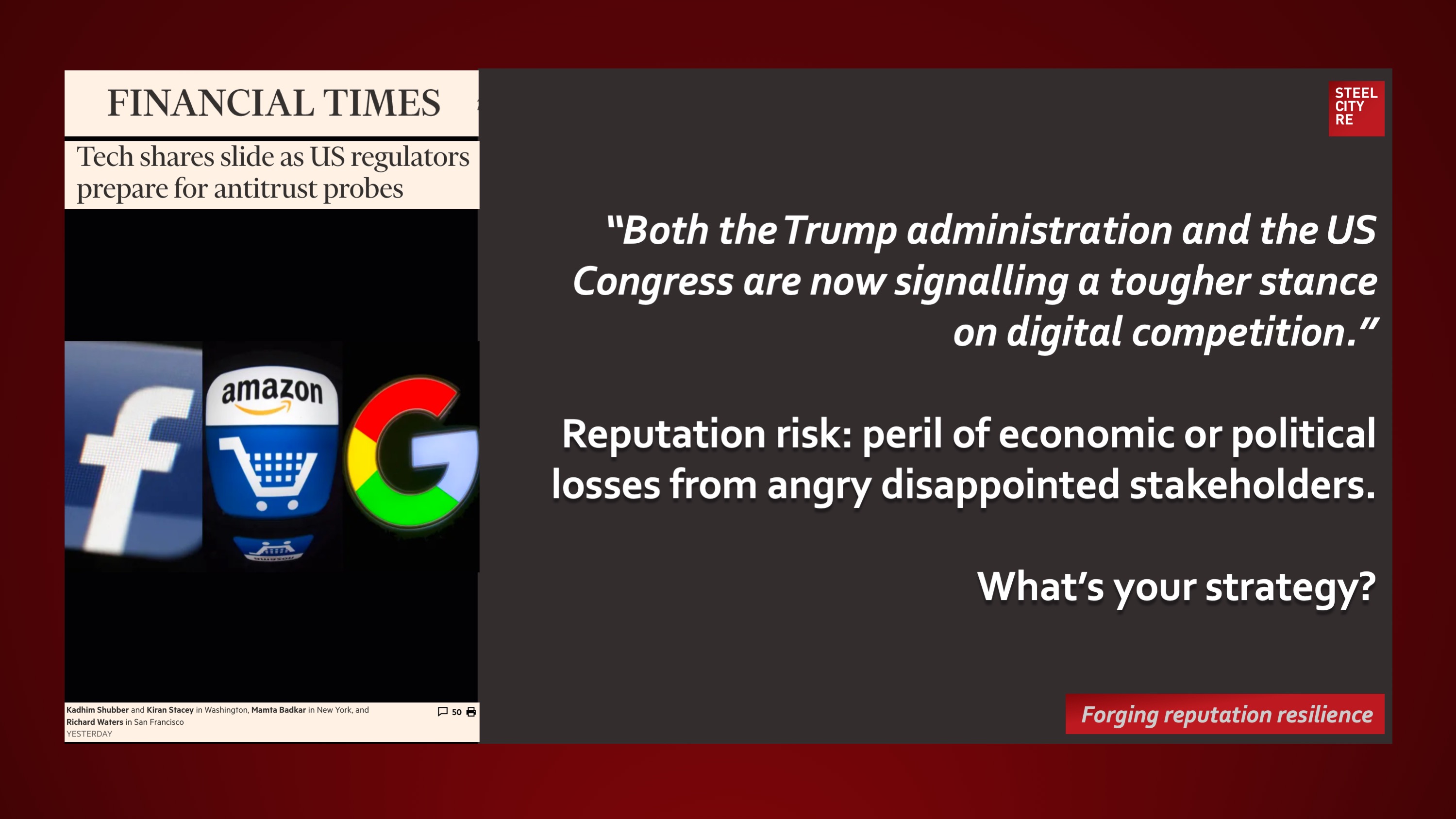“US antitrust enforcers have carved up jurisdiction for possible investigations into Google, Facebook, Amazon and Apple, according to two people familiar with the matter, in a development that wiped more than $133bn from the market value of the technology giants on Monday…’The growth of monopoly power across our economy is one of the most pressing economic and political challenges we face today,’ said David Cicilline, the Democratic lead on antitrust issues on the House judiciary committee. ‘Market power in digital markets presents a whole new set of dangers.’”
Financial Times
June 4, 2019
“Both the Trump administration and the US Congress are now signalling a tougher stance on digital competition.”
Reputation risk is the peril of economic or political losses from angry disappointed stakeholders. Both political parties and branches of the US government have reasons why they are angry and or disappointed with the technology companies. At the center of the political debate is the data privacy issue.
For a broader view of reputation risk, discover additional articles by Steel City Re here, mentions of Steel City Re here, and comments on newsworthy topics by Steel City Re here. To read an abstracted summary of reputation risk, see below.
Reputations are valuable strategic intangible assets. Threats to these assets⏤ enterprise reputation risks, often mislabeled “brand risks” ⏤ need to be managed, and management needs to be overseen through reputation risk governance lest reputational damage or reputational harm result in long-tailed go-forward losses in economic value and/or political power. Because these intangible risks arise from the interplay of stakeholder expectation, experiences, and media amplification, parametric insurances for intangible asset risks, for reputational value, for reputational harm, and for reputation assurance help mitigate risk by telling a simple, convincing and completely credible story of quality reputation governance to stakeholders. This story telling effect is the expressive power of insurance complementing insurance’s better known instrumental power of indemnification.
Risk management, risk financing in insurance captives, and risk transfer through reputation insurances comprise the constituent elements of a comprehensive solution.
What’s your strategy?

